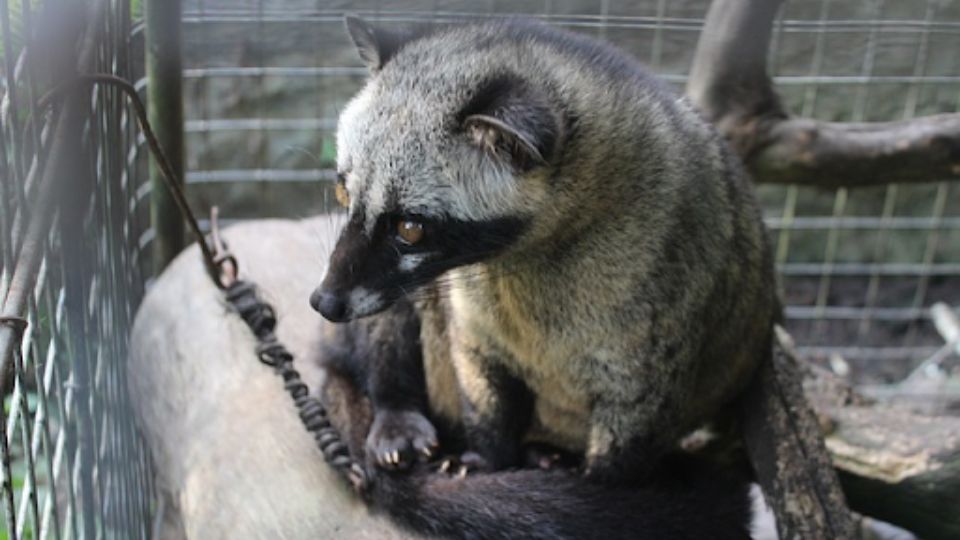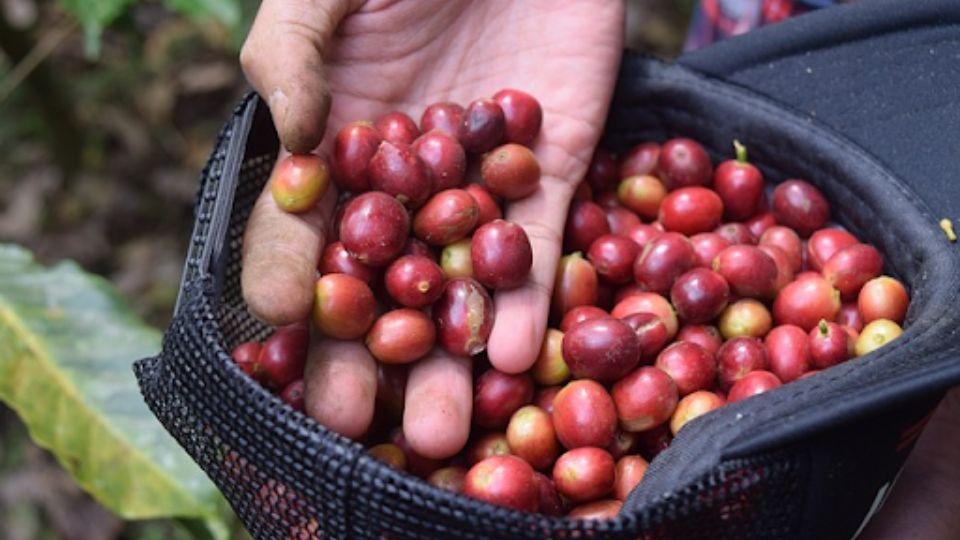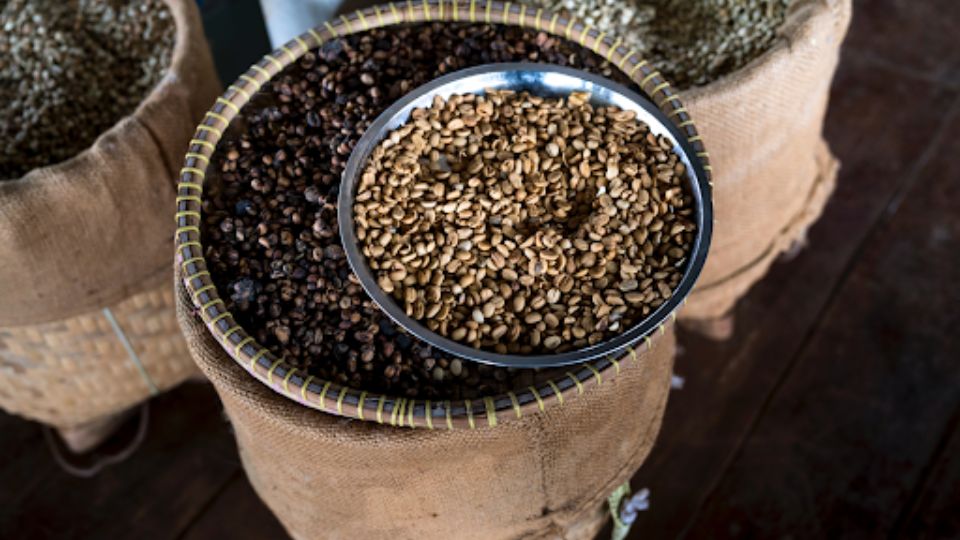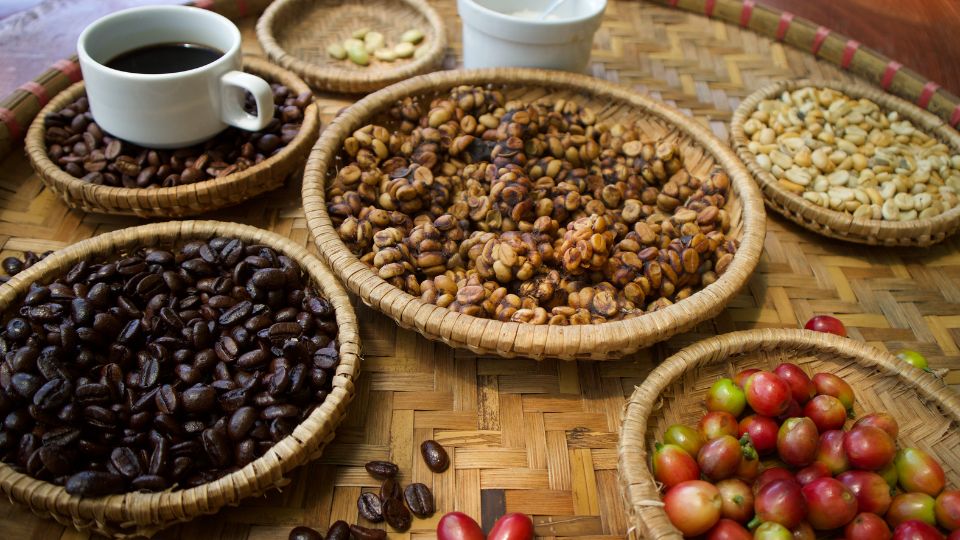What Is Kopi Luwak?
Kopi luwak is coffee made from the faeces of a Civet – an animal from the feline family that enjoys eating coffee cherries and then acts like a processing machine by pooping it out.
If you’re new to the coffee world, learn more about flavours, roasting, extraction, channeling and other techniques with our Barista Pro Course In Adelaide.
How Was Kopi Luwak Discovered?
Modern coffee processing techniques involve a machine that wasn’t easily accessible back in the 19th century. When the Dutch prevented local employees from collecting their own coffee during the colonial period of the 19th century, native farmers in Indonesia found and collected the coffee beans produced by the Civet.
The demand for this expensive coffee kept increasing and then turned into a lucrative business.
Can you imagine the demand for cat poop? The free Civet cat that was once happily strolling the forests of Indonesia or Singapore suddenly got caught, and was made to consume coffee cherries and produce a ton of poop!
Some Asian Palm Civets are domesticated for the purpose of their poop while some are allowed to graze freely in the woodlands nearby.
Before we dive into the other details about these expensive coffee beans, watch this video that gives you an idea about the process:
Is Civet Coffee The Same As Kopi Luwak?
Yes, it is the same coffee. Kopi is coffee in Indonesian language while luwak refers to the Asian palm civet.
The Asian palm civet aids in the preservation and enhancement of Singapore’s forests by encouraging seed distribution by ingesting seeds wholly while consuming fruits and subsequently defecating them.
By consuming pest insects and rats, it also acts as a biological pest management method by reducing their populations.
What Is A Civet?

An Asian Palm Civet is the animal responsible for processing coffee beans while Kopi Luwak is the result of coffee bean processing.
When the animal ingests the coffee fruit, it goes through, gets de-pulped and goes through an organically wet fermentation profile that is otherwise done with the help of a de-pulper.
Where Does Luwak Coffee Come From?

This expensive coffee originated in Indonesia and has since expanded to a few other South East Asian nations with comparable climates and ecologies. It originated in Indonesia and gradually moved to other pasts of South East Asia.
Recently, it has become popular among celebrity coffee drinkers like Jack Nicholson, Oprah Winfrey’s mention of it on her show in the U.S. and now it is popular among coffee drinkers in Adelaide.
How Does Kopi Luwak or Civet Coffee Taste?

A specific form of fermentation takes place during digestion, giving this coffee its distinct flavour.
Smooth and earthy have been used to describe the flavour of kopi luwak. Additionally, it is frequently claimed to be richer and less bitter than other coffee kinds.
The type of coffee cherries consumed by the civet and the environment in which the coffee trees grow have a significant impact on the flavour.
The results of many evaluations of the flavour of kopi luwak in recent years are somewhat startling. According to the Speciality Coffee Association of America (SCAA), kopi luwak just doesn’t taste good.
Kopi luwak received the lowest rating out of all the coffees cupped (tried and tested) using the SCAA cupping scale. However, it was acknowledged that kopi luwak’s lower acidity and smoother body may be appealing to some coffee connoisseurs.
How To Drink Kopi Luwak Coffee?
- We’ve put together a simple method to use that bag of luwak beans:
- Grinder your luwak coffee beans to a coarse setting (similar to sea salt in texture) and add 6 ounces (177 ml) of boiling water to the pot
- Use a pour over cup or mug to add coffee, then shake it briefly to smooth it out
- Fill the grinds to the top with water that has just come to a boil (205°F; 96°C), until there’s just enough water that is used to cover the area
- We’d recommend waiting for 15 seconds until you give it a stir
- For an even extraction, pour water in a slow, even spiral, adding water every 10 to 15 seconds
- Once you have finished pouring the water, wait around three minutes
How Does The Civet De-pulp Coffee Cherries?
Numerous significant chemical processes take place as the cherries move through the digestive system, and the civet’s internal enzymes break down the coffee cherries. From there, the undamaged beans and the civet cat’s waste are gathered.
Due to the increased demand for coffee, humans discovered that hunting for these Civet cats’ excrement had become a lucrative business. Civet cats were eventually raised solely for the purpose of producing Kopi Luwak as demand increased.
Some were fortunate enough to be able to roam freely in the nearby plantations and woodlands, but others were not so fortunate—more on that later.
How Are Kopi Luwak Beans Obtained?
The luwak beans are obtained after the Civet has eaten the coffee cherries that it smartly picked out for consumption and poops it out in natural clumps of coffee beans, which are then collected, washed and sold for money. The beans are called cat poop coffee for a reason!
Is Kopi Luwak Safe To Consume?
It’s perfectly safe to eat kopi luwak. Generally speaking, it is discovered to be a low-tannin, low-acid coffee with a plethora of other health advantages not found in other variants. The coffee is thought to have less acidity and sharpness, which gives it a smooth flavour and distinctive scent.
The 4 Health Benefits Of Kopi Luwak/Civet Coffee Include:

Indonesian Coffee & Cocoa Research Institute and Osaka University researchers collaborated in 2013 to investigate the biological and metabolomic differences between kopi luwak and other varieties of coffee.
They collected samples of 21 different types of coffee beans, including standard Arabica and Robusta beans, synthetically produced imitation kopi luwak, and various combinations of kopi luwak and regular beans.
The health benefits of kopi luwak greatly outweigh those of other varieties of coffee, the researchers’ findings showed.
These coffee beans have a few health benefits because of its ‘organic’ nature and the way it is produced (Through the animal’s digestive system).
A few of these health benefits include antibacterial and antioxidant properties, but it is subjective to each individual consuming it.
- It Helps Polycystic Ovarian Syndrome
Kopi luwak has the highest levels of Inositol that, aids in ovulation and improved fertility in women. Inositol is a sugar alcohol that is naturally produced in our kidneys and is also present in a wide variety of other meals.
In addition to being crucial for the formation of cell membranes, inositol functions as a “secondary messenger” in the neurological system, enhancing the effects of neurotransmitters in the brain.
- Helps Mitigate Chronic Fatigue Syndrome
Malic acid is an organic substance that all living things spontaneously produce. It is frequently prescribed as a supplement for chronic fatigue syndrome because of its well-known capacity to sharply improve energy and tolerance to demanding exercise and muscle discomfort.
Malic acid, according to the Journal of Nutritional Medicine, supports the Krebs cycle, which is how our body converts lipids, carbs, and proteins into useful energy.
Exogenous malic acid (malic acid consumed from outside the body, such as through kopi luwak) aids the body in producing ATP, the source of energy, more effectively, according to the Journal of Rheumatology.
- Its Great For Your Digestive System
Coffee typically has negative effects on the stomach, such as pain, for people with more sensitive tummies. We’ve mentioned in our previous blogs that coffee is acidic in nature and processing impacts the acidity levels.
This coffee on the other hand is less acidic and contains less caffeine. Therefore, if you consume Luwak coffee, you are less likely to get a stomach ache.
- It Controls Diabetes
Civet coffee beans have low levels of acid concentration that may help those with type 2 diabetes. Additionally, studies have indicated that regular consumers of civet coffee can cut their chance of developing diabetes by up to 50%.
How Much Does Luwak Coffee Cost?
The price of a single cup of Kopi Luwak coffee can range from $35 to $100. To put that in perspective, a typical coffee cup costs just over $4. If coffee producers want to stock it and sell it commercially, the price could range from $100 to $800 per bag.
How Much Luwak Coffee Is Produced In A Year?
The islands of Vietnam, the Philippines, and Indonesia are where kopi luwak is primarily manufactured. Genuine kopi luwak is produced annually in quantities of 500 to 700 kilogramme (1100 to 1500 pounds).
Why Does Kopi Luwak/Civet Coffee Cost A Lot?
The traditional methods used in kopi luwak coffee production play a significant role in its high cost. Farmers frequently search on land and in forests for suitable beans, which requires a lot of time and effort during production.
Some of these methods involve intensive farming where the Asian palm civet is kept in a battery cage which and is fed cherries. There is an animal cruelty controversy surrounding this practise that we cover towards the end of this blog.
How Much Does Kopi Luwak Cost In Australia And Is It Allowed?
Kopi luwak coffee costs anywhere between $1,490 to $2,800 in Australia. The coffee beans are allowed into Australia, provided the beans are roasted as mentioned by DAFF Biosecurity Australia. No import permit is required for Civet coffee/Kopi luwak as long as the following conditions are met:
- The coffee beans are prepared and packaged commercially
- The quantity imported is maintained within the 1litre /1kilogram limit
- The coffee beans are for personal consumption
Is The Process Luwak Coffee Harming Animals?
Yes to some extent. The luwak’s food in the wild consists primarily of insects, seeds, and fruit, such as papaya, pineapples, and coffee. But in order to increase production, commercial luwak farms have been made where the animals are compelled to eat just coffee beans.
Are Civets Forced To Eat Coffee Beans?
The luwak’s diet is restricted to coffee fruit, which results in nutritional inadequacies that can be harmful to their health. In order to maximise space, luwaks are also kept in cages where tourists with cameras can visit and observe them in action.
The issue is that luwaks are nocturnal, solitary animals by nature. They may become distressed if you keep them near to one another and keep them awake during the day to accommodate visitors.
If the issue was limited to a few unreliable producers, then it might be a case of a few bad apples tainting the bunch. But in 2016, Oxford University researchers and London-based World Animal Protection evaluated the conditions of nearly 50 wild luwaks kept in cages at 16 Bali plantations.
Is It Authentic Kopi Luwak Or Some Other Coffee?
The fact is that it can be difficult to find certified goods. The likelihood is that the coffee you do purchase comes from a caged plantation as opposed to a wild luwak business. That applies not just to Indonesia but to the entire world.
A BBC undercover investigation in 2013 exposed how coffee from luwaks kept in cages under cruel conditions ends up being sold in Europe under the name “wild luwak coffee.”
Conclusion
The Luwak coffee has a niche following for coffee lovers that know their coffee. Some producers give you the the real deal, while some could be selling coffee that isn’t authentic.
There are several products that use different animals as a result of the success of luwak coffee. like coffee beans made from the waste of various birds, primates, elephants etc., that might lack basic hygiene or even be harmful for consumption.
Buying and consuming this coffee is completely up to you, but we would suggest you conduct a quick research about the product before you make any purchases.
To get more knowledge and insights of the coffee world, read our article on What Difference Does Pre-infusion Make To Your Espresso In A Coffee Machine

